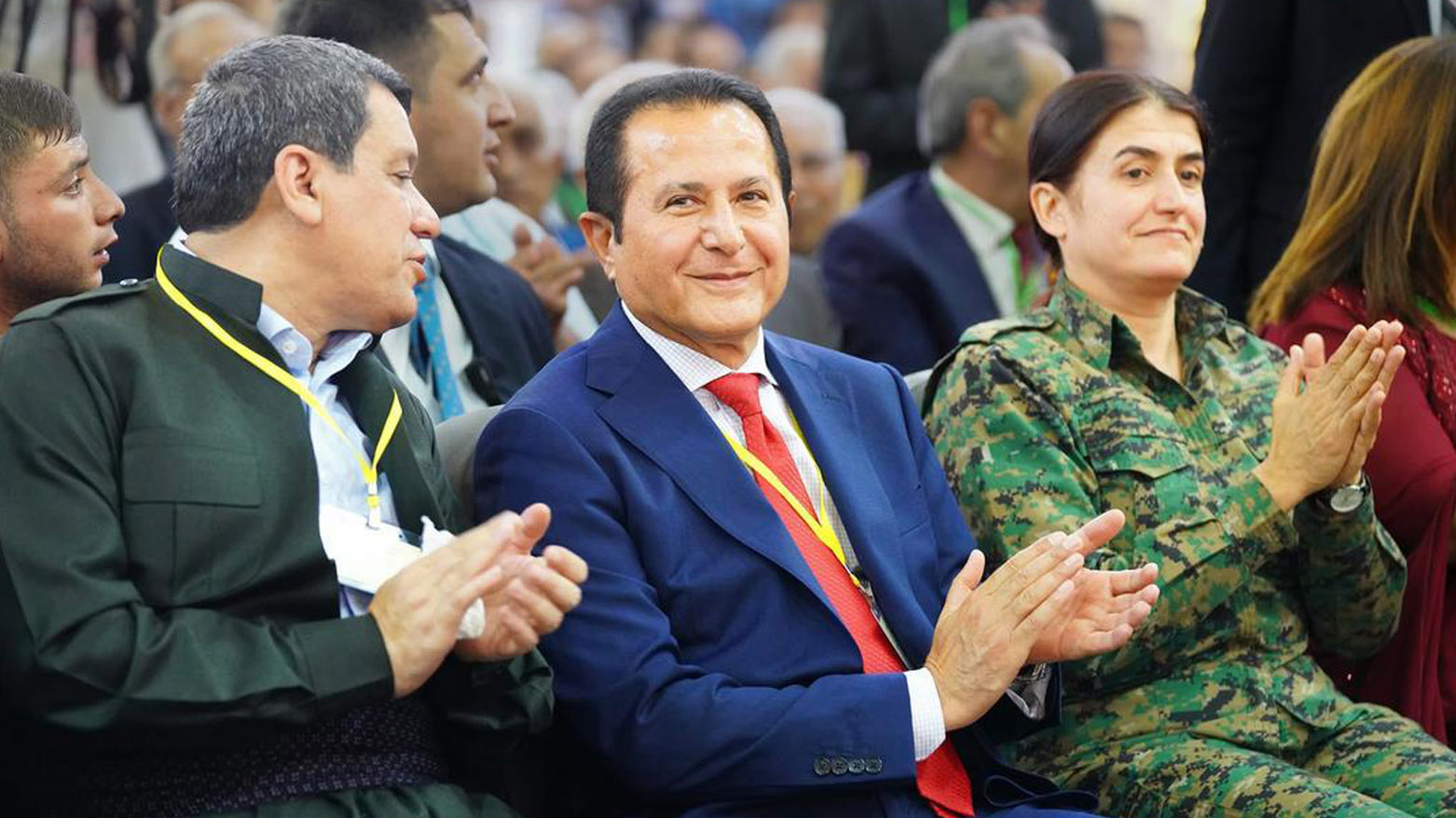Kurdistan24 reveals the points of the Kurdish unity conference
The conference, held under the auspices of President Masoud Barzani, marks a historic endeavor to unify Kurdish ranks in Syria and Kurdistan24 discloses the content of the political roadmap of the conference.

By Ahora Qadi
ERBIL (Kurdistan 24) – The Kurdish Unity and Solidarity Conference in Qamishlo, Western Kurdistan, convened today, Saturday, with the participation of over 400 representatives from various Kurdish political parties, dignitaries from all four parts of Kurdistan, and international observers. The conference, held under the auspices of President Masoud Barzani, marks a historic endeavor to unify Kurdish ranks in Syria and Kurdistan24 discloses the content of the political roadmap of the conference.
Ten-Point Framework for Kurdish Rights in Syria
Kurdistan24 has learned that the conference discussions centered around ten principal points forming the Kurdish shared paper, aiming to solidify Kurdish unity and address the broader Syrian crisis:
- Syria shall adopt a decentralized governance system, respecting the administrative particularities of all regions.
- National resources must be equitably distributed among all Syrian regions.
- Kurdish must be recognized as Syria’s second official language.
- Kurdish representation should be guaranteed across all government institutions.
- Syria must be rebuilt on the foundation of justice and rule of law.
- The economic situation in Kurdish regions must be significantly improved.
- Past Arab Belt project policies must be reversed.
- All previous demographic engineering decisions must be annulled.
- Syria must become a civil state where the constitution enshrines the rights of all ethnic and religious components.
- Full equality between men and women must be guaranteed constitutionally.
Additionally, the conference endorsed broader principles including:
- Recognition of Syria as a multi-ethnic, multi-religious, and multi-cultural state under a federal and decentralized system.
- Ensuring the protection of human rights, equal citizenship, freedom of belief, and women's rights.
- Recognition of Kurdish regions as a single, integrated political and administrative unit within a federal Syria.
- Constitutional acknowledgment of the Kurdish people's national rights, including the right to education, media, and cultural expression in Kurdish.
- Reversal of policies like the "Arab Belt" and restoration of rights to displaced Kurds.
President Barzani: “Unity Is the Key to a Just and Enduring Solution”
In a letter read by his envoy Dr. Hamid Darbandi, President Masoud Barzani described the conference as a "historic turning point" for the Kurdish people in Syria.
“For decades, the Kurds in Syria have endured systematic marginalization and denial,” Barzani stated. “Now, with rapid changes unfolding across Syria and the region, a major opportunity stands before the Kurdish people — one that demands courage, vision, and unity.”
He stressed that resolving the Kurdish question must be achieved through peaceful, democratic means, and reiterated that Kurdish unity, backed by an inclusive, decentralized Syrian state, is vital for securing sustainable peace.
Barzani added, “Building a unified Kurdish delegation to negotiate with the new Syrian government is an essential step towards safeguarding our people's rights and ensuring active Kurdish participation in Syria’s political future.”
Mazloum Abdi: “Kurdish Strength Is Syrian Strength”
Speaking at the conference, General Mazloum Abdi, Commander-in-Chief of the Syrian Democratic Forces (SDF), highlighted the crucial role played by Kurdish leaders across the region, saying, "Above all, we will not forget President Barzani's efforts and hard work, and we thank him."
He also praised the efforts of other Kurdish political actors, stating, "The KCK co-presidency, along with Mr. Nechirvan Barzani and Mr. Bafel Talabani, each played a role, and we thank them."
A Vision for a New Syria
The paper obtained by Kurdistan24 also echoed calls for:
- Federal governance preserving local identities.
- Reinstatement of Syrian citizenship to stateless Kurds deprived by the 1962 census.
- Rebuilding Kurdish infrastructure and ensuring fair distribution of natural resources.
- Official recognition of March 21 (Newroz) and March 12 (Qamishlo Uprising) as national holidays.
- Full rights for children, women, and minorities, anchored in international conventions.
Moreover, the Kurdish vision insists on maintaining Syria’s sovereignty, while affirming peaceful coexistence among Arabs, Kurds, Assyrians, Armenians, Turkmen, Circassians, Alawites, Druze, Yazidis, Christians, and all components of Syrian society.
